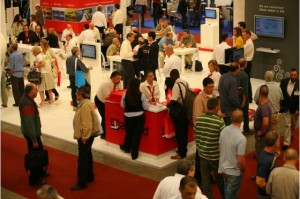
Energy production depends on water, and water purification depends on energy. However, as both resources are being depleted at an unsustainable rate, the connection between them is under threat.
Israel is a hub of water technology as well as alternative energy. Because of that the Middle-Eastern country is keen to be seen as a leader in water, energy efficiency and related technologies in a world of dwindling resources and more pressure on them.
Facts and figures
We really should be worried. Only 1% of water on Earth is suitable for human consumption. Agricultural use accounts for 70% of global water consumption, but roughly a third of freshwater use for agricultural purposes is unsustainable. Lakes and rivers are shrinking and the world population is marching towards a projected nine billion people by 2050. By 2030 we will need 50% more water than we currently consume. With developing economies such as India, China and Brazil increasing their demand for water and energy, it is obvious that something needs to be done.
On the energy front, we are still pretty much reliant on fossil fuels and coal, both of which are non-renewable emit massive amounts of greenhouse gases. Economies depend on energy to develop and although alternative energy sources such as solar, wind and biofuels are making strides, they still account for a fraction of the power currently used as electricity and transport fuel.
The Israeli case
WATEC proposes that the energy and water challenge should be addressed together because of their co-dependence. As a country, Israel has had to face challenge for longer than most countries, due to its climate and geological conditions. One of the innovations that came out from there is drip irrigation system, which provides a more energy efficient way to water crops by directly watering the roots of the plants. The excess water is then collected for reuse. Drip irrigation requires little energy and recycles its wastewater, and has helped curtail agricultural water use. Today, recycled water constitutes three-quarters of the water Israel uses for agriculture.
Israel is also a leader in the desalination sector. In 2009, the world’s biggest reverse-osmosis desalination plant opened in Hadera, where it purifies 127 million cubic meters of sea water from the Mediterranean. The plant employs an energy-efficient, cheaper method; at the same time national firms are working to incorporate solar energy to improve the efficiency of distillation, an effective method of desalination.
Israel has plans to increase its use of renewable energy 10% by the year 2020. It is currently working to establish one of the biggest electric vehicle networks in the world. By 2015 Israel will become state with an independent water supply, which means it will no longer depend on rainwater. The WATEC 2011 will be a chance to see what else this country with such challenging natural resources can teach the world.
Video: Thomas Rooney, CEO Energy Recovery, talks to Energy Refuge about his company’s desalination technology:
Thomas Rooney on Energy Recovery’s technology from Energy Refuge on Vimeo.
You should follow us here.






2 Comments